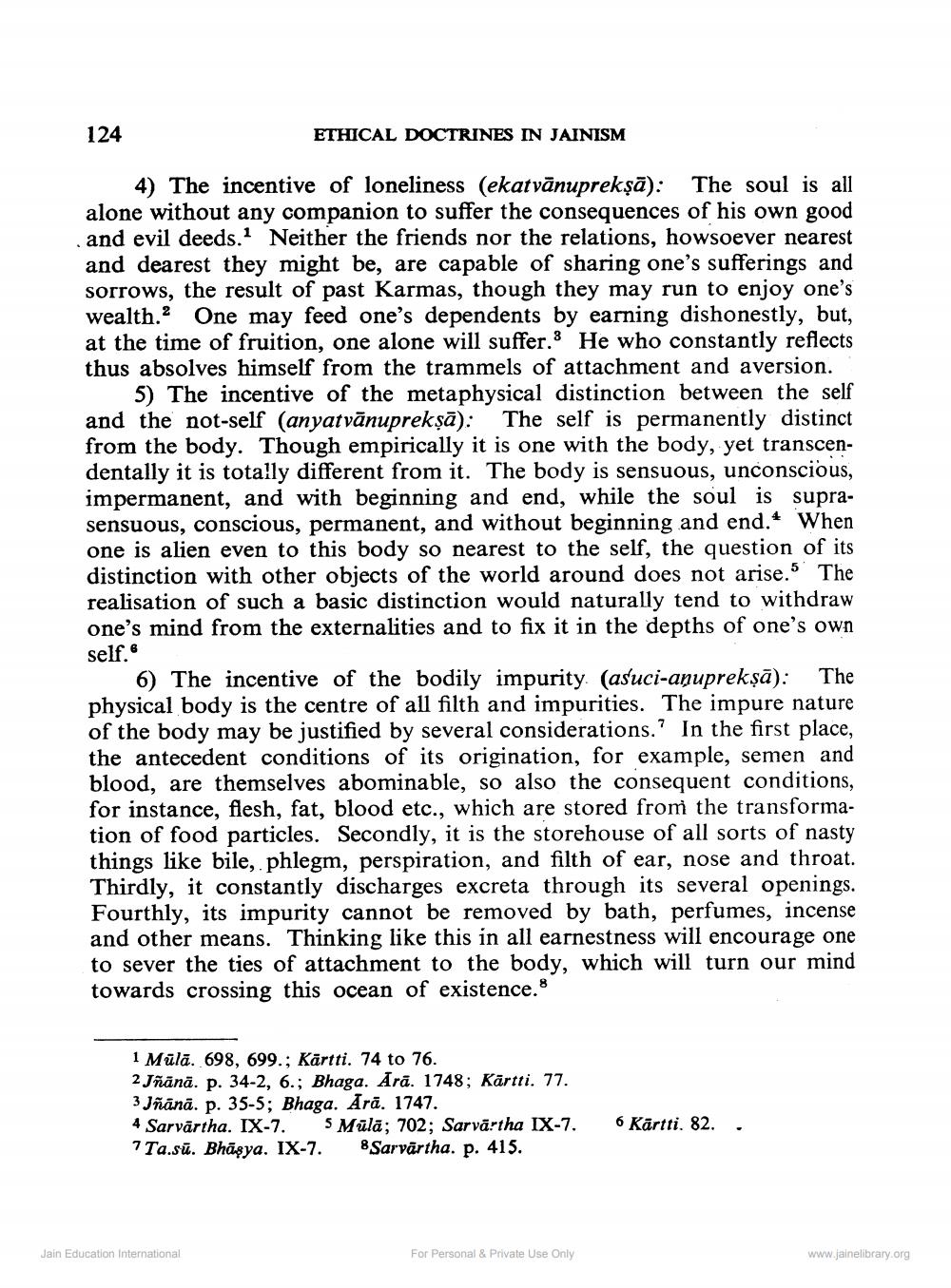________________
124
ETHICAL DOCTRINES IN JAINISM
4) The incentive of loneliness (ekatvānuprekşā): The soul is all alone without any companion to suffer the consequences of his own good and evil deeds. Neither the friends nor the relations, howsoever nearest and dearest they might be, are capable of sharing one's sufferings and sorrows, the result of past Karmas, though they may run to enjoy one's wealth. One may feed one's dependents by earning dishonestly, but, at the time of fruition, one alone will suffer. He who constantly reflects thus absolves himself from the trammels of attachment and aversion.
5) The incentive of the metaphysical distinction between the self and the not-self (anyatvānuprekṣā): The self is permanently distinct from the body. Though empirically it is one with the body, yet transcendentally it is totally different from it. The body is sensuous, unconscious, impermanent, and with beginning and end, while the soul is suprasensuous, conscious, permanent, and without beginning and end.* When one is alien even to this body so nearest to the self, the question of its distinction with other objects of the world around does not arise. The realisation of such a basic distinction would naturally tend to withdraw one's mind from the externalities and to fix it in the depths of one's own
self.
6) The incentive of the bodily impurity (asuci-aņuprekşā): The physical body is the centre of all filth and impurities. The impure nature of the body may be justified by several considerations. In the first place, the antecedent conditions of its origination, for example, semen and blood, are themselves abominable, so also the consequent conditions, for instance, flesh, fat, blood etc., which are stored from the transformation of food particles. Secondly, it is the storehouse of all sorts of nasty things like bile, phlegm, perspiration, and filth of ear, nose and throat. Thirdly, it constantly discharges excreta through its several openings. Fourthly, its impurity cannot be removed by bath, perfumes, incense and other means. Thinking like this in all earnestness will encourage one to sever the ties of attachment to the body, which will turn our mind towards crossing this ocean of existence.
1 Mülā. 698, 699.; Kärtti. 74 to 76. 2 Jñänä. p. 34-2, 6.; Bhaga. Ara. 1748; Kārtti. 77. 3 Jñānā. p. 35-5; Bhaga. Arā. 1747. 4 Sarvārtha. IX-7. 5 Mülā; 702; Sarvärtha IX-7. 7 Ta.sū. Bhāsya. IX-7. 8Sarvärtha. p. 415.
Kārtti. 82..
Jain Education International
For Personal & Private Use Only
www.jainelibrary.org




